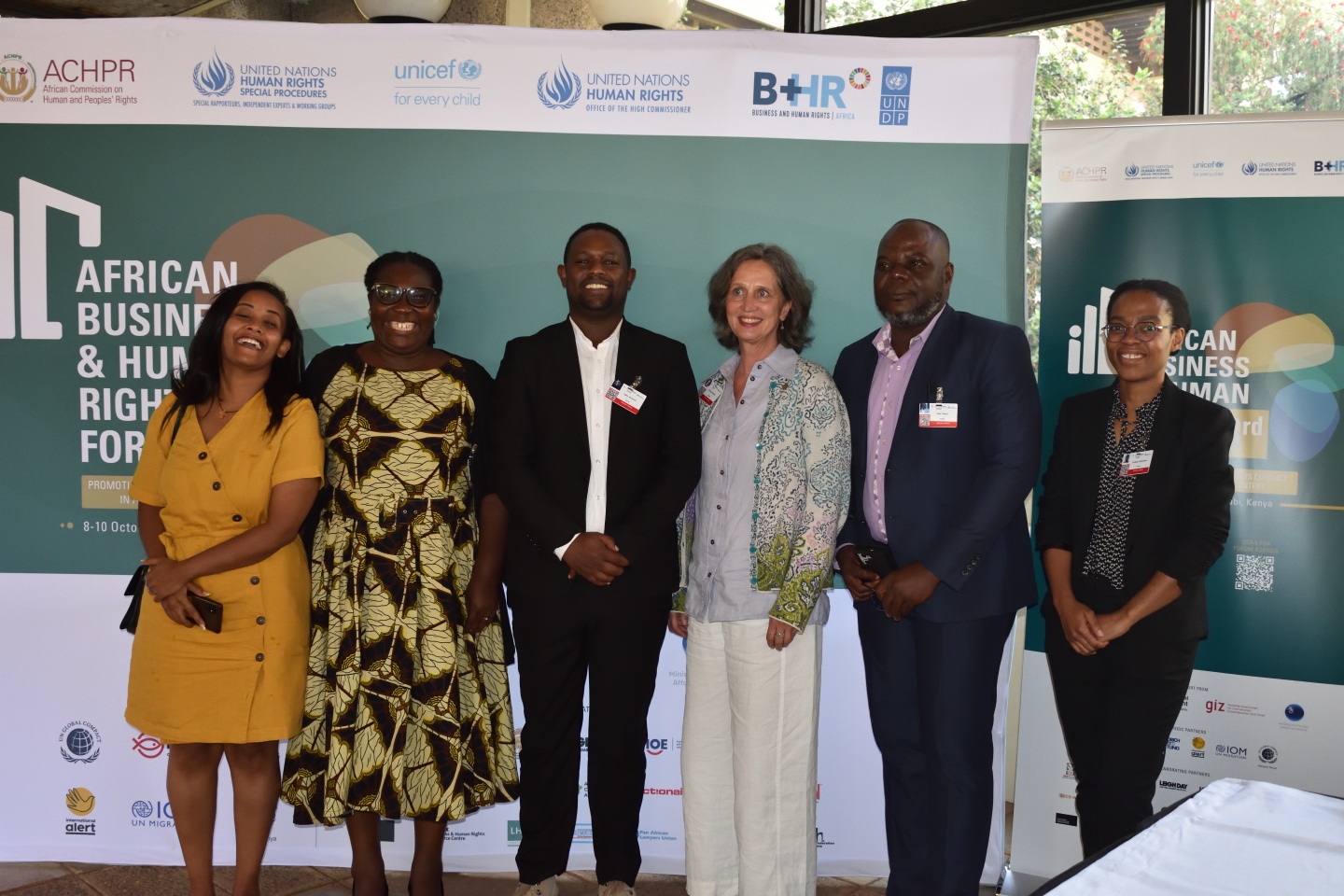17 October, 2024In discussions at the 3rd African Business and Human Rights Forum, Nairobi, Kenya, 8-10 October, trade unions said a developmental approach to business and human rights that supported economic development and industrialization is necessary. They argued that this approach is needed because the continent continues to face challenges of poverty, inequality, unemployment, and climate change’s extreme weather events that include floods and droughts which are devastating communities.
The forum which had over 500 participants from communities, civil society organizations, governments, employer organizations, human rights organizations, trade union organizations and others was held under the theme: “Promoting responsible business conduct in a rapidly changing context.”
Discussions that took place included on Africa’s potential for economic growth based on beneficiation of critical mineral resources and the benefits from the African Continental Free Trade Area (AfCFTA). Other benefits could also be derived from the transition from informal to formal economies. There was emphasis that this development should be sustainable and attained under conditions of responsible business conduct and the protection of the environment. For example, companies that included automotive manufacturer Isuzu East Africa said it supported contracts with suppliers from the informal economy and small to medium scale enterprises thus contributing to growth of the enterprises.
Vacus Kun, United Workers Union of Liberia’s director of education and training, who participated in the national action plan (NAP) processes on business and human rights in Liberia and was on a panel with other trade unionists and global union federation, BWI Africa, said union involvement ensured the inclusion of labour clauses.
“After initially being excluded in the NAP development process, we fought hard for the inclusion of labour issues in the plan when we were invited. We also reached common positions with civil society organizations on climate justice issues.”
UWUL is affiliated to IndustriALL Global Union, and the panel discussions were supported by the FES-AU office.
The NAP has provisions to protect workers against discrimination, casualization, child labour, and included union demands for implementable business and human rights reporting mechanisms and access to remedy using existing laws. Other countries that have developed NAPs are Kenya, Uganda, and Liberia. According to the UNDP, there is progress towards NAPS in Senegal, Ghana, Malawi, Zimbabwe, Mozambique, and other countries. The African Union has also developed a draft business and human rights policy which will be adopted by heads of state and government.
Alex Nkosi, ITUC-Africa coordinator of human and trade union rights, who participated online, said due diligence is important:
“Trade unions are defenders of workers’ rights and are collaborating using on diligence frameworks to defend freedom of association, collective bargaining, and the right to strike.”
Paule France Ndessomin, IndustriALL regional secretary for Sub Saharan Africa said:
“Insisting on responsible business practice allow unions to engage with multinational corporations along the supply chains. This is important as unions seek to engage mining and manufacturing MNCs, ask states to protect workers, as well as enforce remedies against offending employers.”
The forum was organized by the African Commission for Human and Peoples Rights, the UN Office of the Commissioner for Human Rights (OHCHR), Business and Human Rights Africa, UNICEF, the Working Group on Business and Human Rights, and the UNDP with support from various local, continental, and international organizations.
